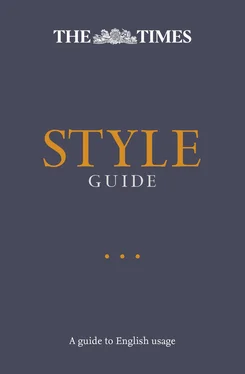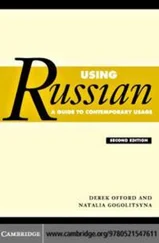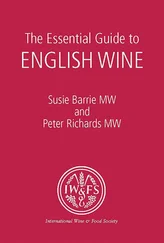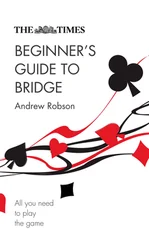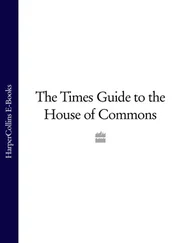awaydayone word
Awolabsent without leave, not AWOL
axingno middle e; but try to avoid in sense of cutting jobs, dismissal etc
ay(yes), aye (ever), Ayes (debate)
Bb
b(abbreviation for born), no full point, eg b 1906. Likewise d for died: d 1997
baby boomer(no hyphen) a person born in the postwar demographic baby boom (roughly 1946–64)
baby-walker
baccalaureateuse anglicised spelling with lower case for general use, but cap in specific context of the International Baccalaureate , taken in some British schools; and note the specifically French examination or degree from which this derives, the Baccalauréat (italic, cap, accent, no final e)
backache, backbreakingbut back pain
back benches(parliamentary) two words; but backbenchers, backbench (adjectival, as in backbench revolt)
back burnerno hyphen, but be sparing of the cliché “on the back burner”, especially when context renders it idiotic (“Never put an explosive issue on the back burner”)
backlashoverworked word; try to avoid
backstreet(s)noun or adjective, no hyphen; similarly, backyard
back-upnoun, hyphenate
bacteriais the plural of bacterium . Bacteria and viruses are different and the terms are not interchangeable. Make sure the terminology is correct. Note that antibiotics are used to treat bacterial but not viral infections
bail outas in to bail someone out of trouble; also bail water from a boat; but bale out of an aircraft by parachute, to escape. NB bailout (one word, as noun)
baitsee bated
balknot baulk
Balkansprefer to Balkan states. This region includes the former Yugoslav republics of Slovenia, Croatia, Bosnia Herzegovina, Serbia, Montenegro and Macedonia, as well as Romania, Bulgaria, Albania, Greece and the European part of Turkey
ballplural in Court Page headlines is dances
ballgownone word
ballotedlike benefited, budgeted etc, has only one t
Baltic states(lower case states) from north to south, and coincidentally in alphabetical order, they are Estonia (capital Tallinn), Latvia (capital Riga) and Lithuania (Vilnius). Do not use the abbreviated Baltics
bandanaprefer to bandanna
B&Bwith caps and closed up around ampersand as abbreviation for bed and breakfast
banisternot bannister
bank holidaybank holiday Monday etc, lower case
Bank of Englandretain cap for clarity in subsequent refs to the Bank
Bank of Mum and Dad
bankruptcyin Britain people file a petition for bankruptcy; they do not file for bankruptcy
baptistryprefer to baptistery
Bar, the(legal); also cap for the Bar (but not the bars) of the House of Commons and cap in military honours sense, eg DFC and Bar
barbecue, barbecuingbarbeques should be confined to pub menus
barcodeone word
bar mitzvahlower case, roman; also bat mitzvah for girls
baronypertains to barons (who are Lord X, never Baron X, except in the formal announcement that a title has been gazetted). Baronetcy to baronets (hereditary titles carrying the prefix Sir, eg Sir Fred Y. The Times does not usually use the Bt suffix except with obituaries). Knighthoods, which also use the title Sir, are not hereditary
baroquelower case like similar terms
barterto exchange one thing (or service) for another; not a synonym for bargain or haggle
basicallygreatly overworked word that rarely adds anything to a sentence. Always try to avoid
basis“on a … basis” is a cliché and to be avoided. For “employment on a part-time basis” say “part-time employment”. Other usages are similarly redundant (“on a regular basis” — “regularly”; “on a daily basis” — “daily”; “on a voluntary basis” — “voluntarily”, “willingly”, or “without pay”, depending on context; and so on)
Basle(Switzerland), not Basel or Bâle. But note, FC Basel, the football team, and Art Basel, the art fair
Basque country, the
bated/baitednote the difference: bated breath; baited hook; bait as a verb is to persecute, tease or torment (as in bear baiting); bate is the verb to use of a tethered hawk beating its wings and trying to jump from its perch, should you have occasion to write about such a thing
battalionnever batallion. Say the 1st Battalion, the 7th Battalion etc (not First, Seventh)
battletry to avoid using as a transitive verb as in “The students battled the police …”; use “fought” or “battled against” instead; be wary of using at all (along with similar language) in relation to illness (battle against cancer etc)
battle cry
battleshipa heavily armoured warship of the largest type, with many large-calibre guns. Beware. Battleship is not synonymous with warship: eg cruisers and destroyers are warships but they are not battleships. Historically, a battleship (line-of-battle ship) was any warship of sufficient size and armament to take her place in the line of battle; in other words, a ship of the line
BBCno need to spell out as British Broadcasting Corporation, although “the corporation” is a useful alternative in text. Avoid “the Beeb” except, on rare occasions, in columns or commentaries . The BBC is an organisation fond of capitals. Most are unnecessary. BBC job titles, like any others, are lower case: controller, chairman, director-general, governor. So are BBC television and BBC radio and the BBC charter. The BBC Trust may be capped when there is a risk of ambiguity, but is generally lower case. Caps for the historic radio stations: the Light Programme, the Home Service and the Third Programme
BCSee AD
be-all and end-allnote hyphens
beanbagone word
Beatles, theno need to cap the unless at the start of a sentence; similarly the Clash, the Killers, the Rolling Stones, the Smiths, the Who etc (now even the The, should there ever be any need to refer to them again)
becquerellower case for the radioactive unit, symbol is Bq
bedizenedarchaic but lovely word meaning dressed or decorated gaudily or tastelessly
Bedouinprefer to Beduin for the nomadic peoples of Middle Eastern and north African deserts
beg the questionrefers in logic to an informal fallacy whereby an argument assumes its own conclusion: eg “this usage is unattractive because it is ugly”; that sense seems worth preserving. More commonly used as just another (less good) way of saying “raise (or ask) the question”; some readers are (logically) annoyed by this
beleaguereda cliché, especially in a political context, so best avoided
Belfast north, south, east and west , lower case
bellringer, bellringing, belltowerno hyphens
Читать дальше
